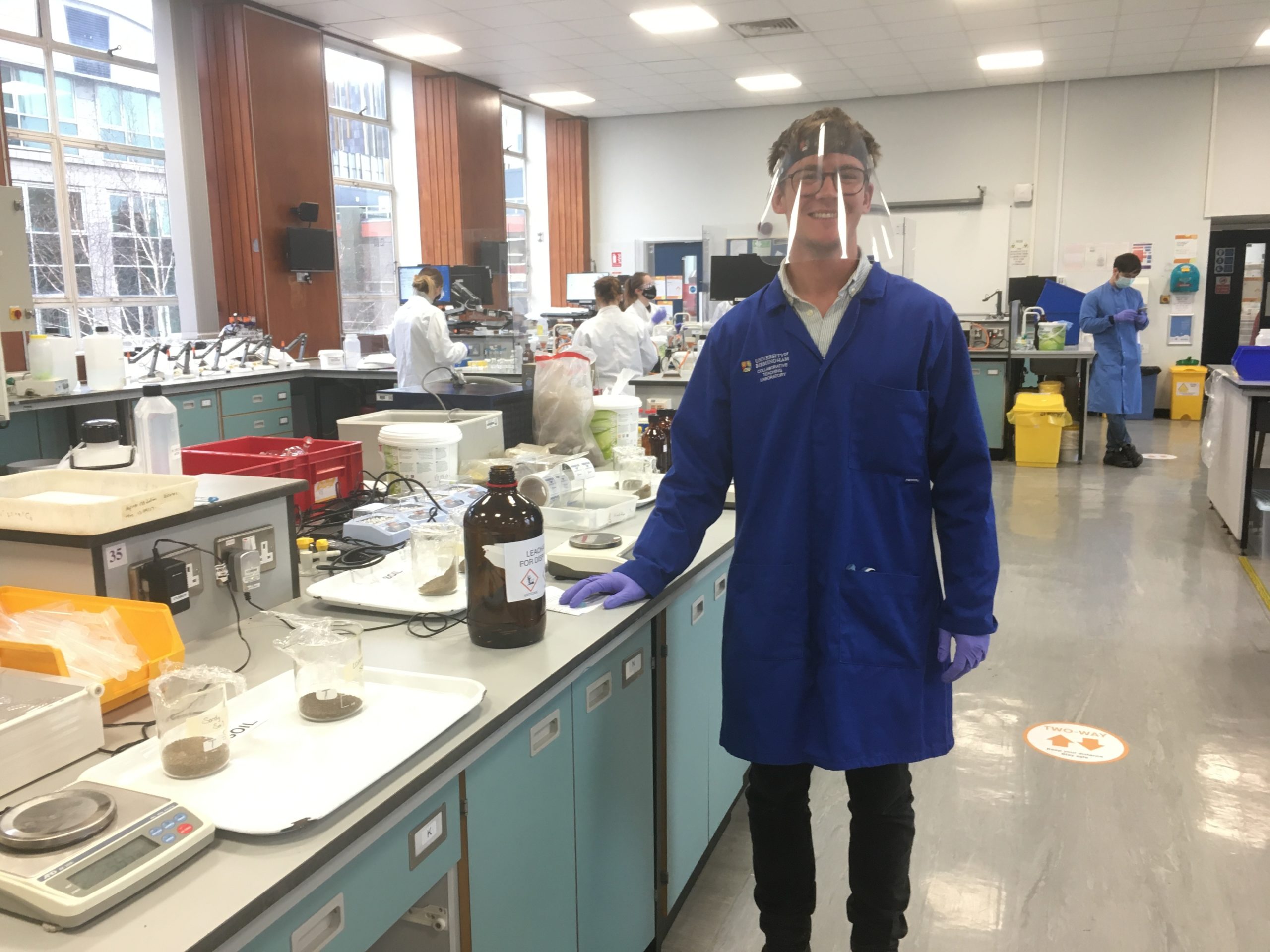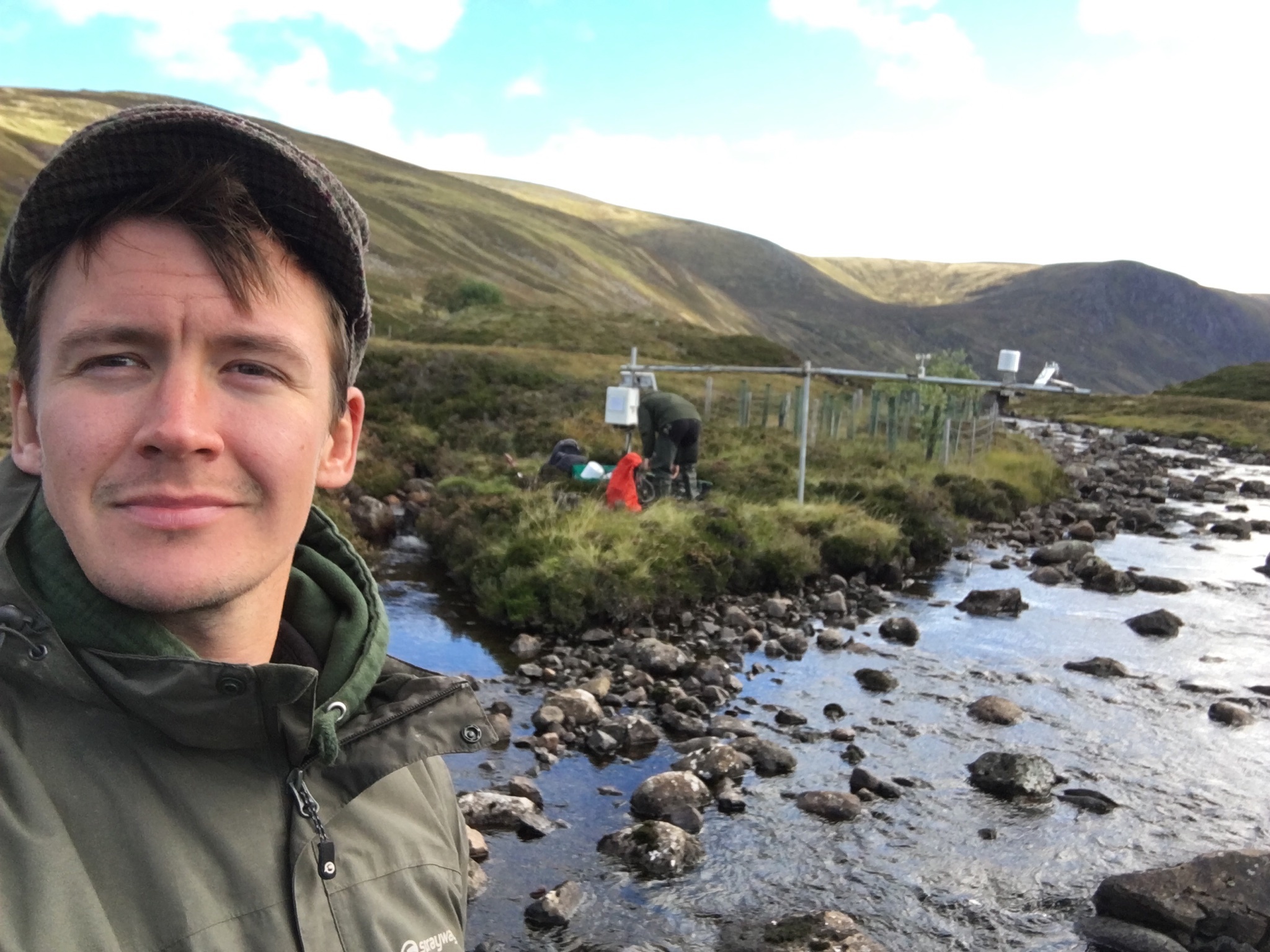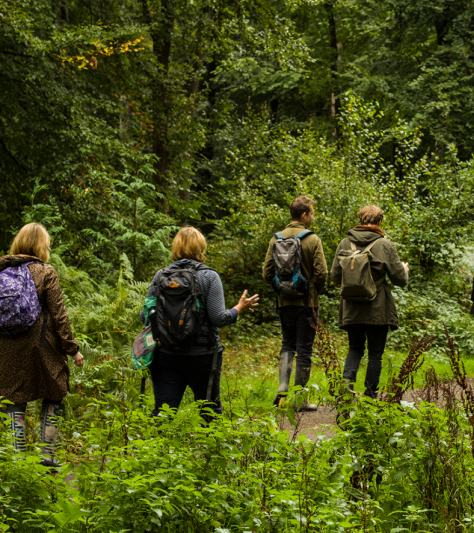Forest Researcher

Introducing Ben Howard, Doctoral Researcher at the University of Birmingham
What do I do?
I am an environmental scientist interested in trees, wood and water. I’m researching how trees and wood in and around rivers influence water quality, and especially how we can restore and manage woodlands and waters to improve water quality and ecosystem health.
Rivers and streams can act like a liver, removing pollutants and cleaning up water as it flows downstream. However, centuries of mis-management – like channelization, dredging and removal of riparian zones – has reduced this capacity, contributing to the poor state of our waters in England, where 0% of river, lakes and streams are classed as in good health.
Introducing wood in rivers, directly in restoration or indirectly by rewooding riparian zones, might offer a nature-based solution to polluted waters. Instream wood creates features and obstacles, slowing water down and creating a variety of flow patterns which pushes water into the river sediment and pulls it back out again. Here in the sediment, the water meets a bioreactor of microbes which help transform harmful pollutants into harmless solutes and gases.
I am lucky to spend so much time outside in rivers and forests, mostly at the Birmingham Institute of Forest Research’s experimental forest in Staffordshire. I also spend lots of long nights in the lab analysing thousands of water and gas samples.

Why do I do it?
Growing up in Yorkshire, almost all my daylight hours were spent outside, which I am forever grateful for. I still love been outside now, and especially in woods and forests where I feel most at peace. Though I don’t spend quite as much time in the forest as I used to, my work has allowed me to spend probably a third of my working time there in the last few years – pretty good going I reckon. I’m aware that this might not always be the case, but I think this career will allow me to stay connected to nature in some way or another, which is important for me.
Doing a PhD, the first step of being a researcher, affords great freedom. It allows me to choose, to some extent, what I am working on, to theorize and hypothesise, to investigate and experiment. It is to engage in a thoughtful and creative process, often involving teams of interesting and passionate people setting their minds to a single problem or question. I have felt tremendously lucky to be working on my PhD, which I have loved (almost) every minute of.
Then there is the seemingly obvious answer, which surely most scientists would admit is a major motivation: the chance to contribute to scientific understanding and the betterment of society. Knowing I am contributing to work that is important and impactful makes the hard work worthwhile, even if the stipend is rubbish!
How do I feel I am contributing to the climate emergency?
Apart from the changes I can make in my personal life (changes we can all make), I am grateful that I can contribute to tackling the climate crisis at work too.
In the UK, most of our surface and groundwaters are polluted with high concentrations of nutrients like nitrogen and phosphorus. To make this water safe for drinking and bathing, it must pass through water treatment plants where the water is cleaned in a series of processes. The treatment process is costly and energy intensive, and importantly produces lots of harmful greenhouse gases which contribute to climate change. The nature-based solutions we are trialling could partially clean-up water along the watercourse, reducing the intensity of treatment required in water treatment plants and therefore reducing greenhouse gas production. Furthermore, these solutions could also capture and store carbon in rivers for a long time.
Advice to other people who might want to follow a similar career path
Before university I barely knew what a PhD was and I certainly didn’t know anyone who had done one. Even when I learned about the academic pathway, I assumed a PhD was well out of my grasp. However, it was not as far off as I thought. Academic achievement is important but a track record of interest, initiative and self-motivation will identify you as a good candidate. Go to conferences (which are often free for students), get involved with volunteering and seek out opportunities for relevant experience. Whilst the application process can be competitive, there are more PhD projects advertised now than ever before.
I am fortunate to have easy-going supervisors who have allowed me to jump down rabbit holes and follow winding paths, but pulled me back on course when I have (frequently) strayed slightly too far from the main goal. This is by no means a typical experience. For me, perhaps the most important thing in choosing a PhD is to ensure you will work well with your supervisors: go and meet them, ask lots of questions and talk to their current or previous students.
If you are an inquisitive person with a keen sense of curiosity, I say go for it!
Interested in finding out more about Ben’s work? You can follow him at:
Twitter: @Wood_n_Water LinkedIn: linkedin.com/in/ben-christopher-howard-21b080129
or email him on B.C.Howard@bham.ac.uk

